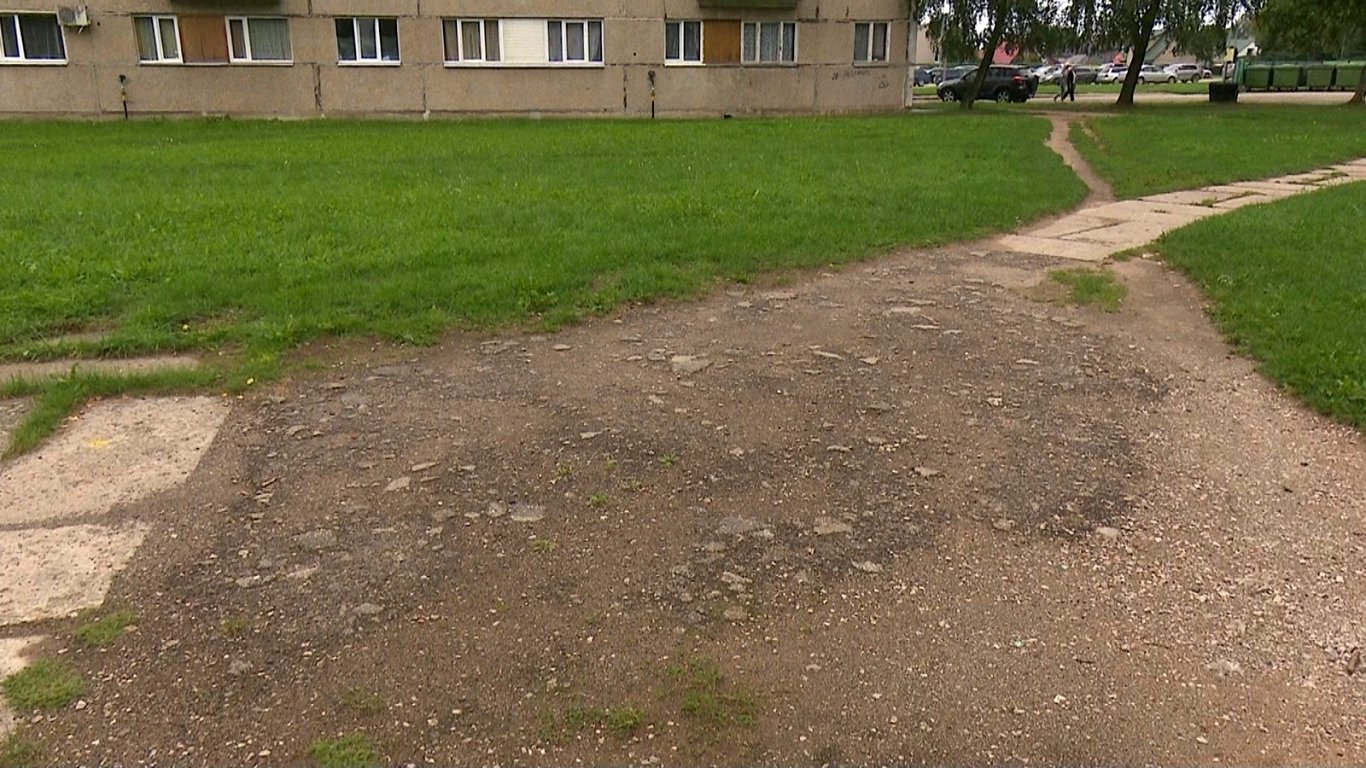Some residents of municipal apartments have already received a notification that they will have to move out of the apartment after six months, as the lease agreement will not be extended.
The residents are confused, but the municipality explained that it is determined by the new binding regulations of the council, reports Latvian Radio.
Sarmīte [Surname not given], a resident of Jēkabpils, has concerns about the future. She said: "We have been living in a two-room apartment since 1999. I have a boy with disabilities. We have low income status. A week ago I received information, a call from the municipality that I might have to leave, the lease agreement must be changed. How long will the lease agreement be signed for? They couldn't tell me whether we would be allowed to live in the apartment at all, they couldn't say either, but they tried to tell me that we may have to buy this apartment. I also explained that we don't have the funds to buy this apartment. For now, we are still waiting for an answer, there is no answer yet. It causes a lot of anxiety."
Tenants are confused as to why their leases cannot be renewed, especially since many have paid their rent and utility bills in good faith.
In Jēkabpils district municipality, it is explained that the legislation in the country has changed, so the lease agreements are being revised. Some tenants will have to leave their apartments within half a year, because they have lost the legal basis to rent an apartment, for example, if the apartment was once given as assistance to a large family and now the children have long since reached adulthood.
Chairman of the Jēkabpils County Council's Development and Economic Committee, Ainars Vasilis (Latvian Green Party), told Latvian Radio: "It is understood that this issue of assistance and housing issues is a timely one, but we have to deal with it. Legislation has said that the issue needs to be addressed. As with any such assistance, there is a time it starts and a time it stops."
The deputy chairman of the Jēkabpils county council for health and social services, Aivars Vanags (Conservatives) emphasized that the municipality, as the owner of the apartments, can decide to evict the tenant from the apartment.
"For example, if I rent an apartment from a private person, I am aware that the apartment is not mine, I am thinking about what to do next, whether to buy the property myself or to continue renting, I know that one day the landlord can say – go away... It's about the same for the municipality. The municipality has given you an apartment, and helped you out, but you realized that that apartment does not belong to you," said Vanags.
However, the Economics Ministry explained that the local government may not have fully understood the changes in the legislation. The new regulations do not apply to apartments rented as assistance in solving housing issues.
The director of the Ministry's Housing Policy Department, Mārtiņš Auders, explained: "The law does not provide for any transitional provisions for what to do with the already concluded agreements concluded in accordance with the law on assistance in solving apartment issues. Therefore, the municipality cannot demand a review of previously concluded agreements, which have been concluded in accordance with the law... the basic purpose of the law is directed forward, to new legal relations that will be established in the future."
The Ministry stated that the municipality is not obliged to review the lease agreements, but the municipality has the right to do so if it chooses.
Auders explained: "The municipality basically has two options for what to do with the non-privatized stock. They can raise the rent, or the other way, which they have obviously chosen, is to give notice and then expropriate these apartments. I assume that in those apartments, the rent is probably too low and they are not cost-effective to maintain."
The municipality explained that it is responsible for too many apartments, so it has been decided to expropriate some of them. Tenants are given time - six months, and are also offered the option to buy an apartment. Although the local authority stated that the tenants who live in these apartments do not have the right of first refusal, Auders disagrees.
"This does not correspond to justice, because the Law on Expropriation of Property of a Public Body stipulates that an apartment must be offered to the tenant first," added the representative of the Ministry of Economy.
























